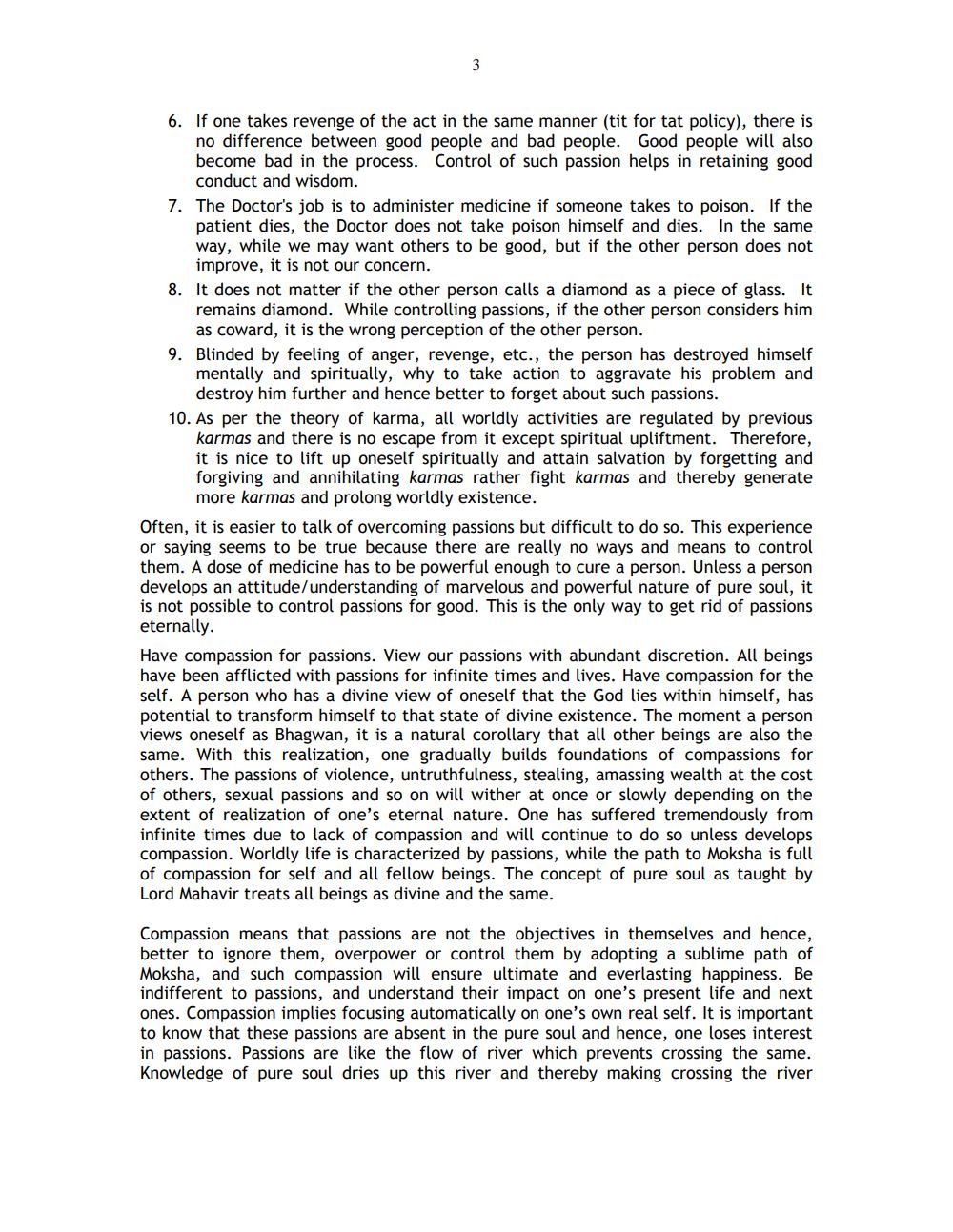Book Title: Compassion and Passions Author(s): Jayantilal Jain Publisher: Jayantilal Jain View full book textPage 3
________________ 6. If one takes revenge of the act in the same manner (tit for tat policy), there is no difference between good people and bad people. Good people will also become bad in the process. Control of such passion helps in retaining good conduct and wisdom. 7. The Doctor's job is to administer medicine if someone takes to poison. If the patient dies, the Doctor does not take poison himself and dies. In the same way, while we may want others to be good, but if the other person does not improve, it is not our concern. 8. It does not matter if the other person calls a diamond as a piece of glass. It remains diamond. While controlling passions, if the other person considers him as coward, it is the wrong perception of the other person. 9. Blinded by feeling of anger, revenge, etc., the person has destroyed himself mentally and spiritually, why to take action to aggravate his problem and destroy him further and hence better to forget about such passions. 10. As per the theory of karma, all worldly activities are regulated by previous karmas and there is no escape from it except spiritual upliftment. Therefore, it is nice to lift up oneself spiritually and attain salvation by forgetting and forgiving and annihilating karmas rather fight karmas and thereby generate more karmas and prolong worldly existence. Often, it is easier to talk of overcoming passions but difficult to do so. This experience or saying seems to be true because there are really no ways and means to control them. A dose of medicine has to be powerful enough to cure a person. Unless a person develops an attitude/understanding of marvelous and powerful nature of pure soul, it is not possible to control passions for good. This is the only way to get rid of passions eternally. Have compassion for passions. View our passions with abundant discretion. All beings have been afflicted with passions for infinite times and lives. Have compassion for the self. A person who has a divine view of oneself that the God lies within himself, has potential to transform himself to that state of divine existence. The moment a person views oneself as Bhagwan, it is a natural corollary that all other beings are also the same. With this realization, one gradually builds foundations of compassions for others. The passions of violence, untruthfulness, stealing, amassing wealth at the cost of others, sexual passions and so on will wither at once or slowly depending on the extent of realization of one's eternal nature. One has suffered tremendously from infinite times due to lack of compassion and will continue to do so unless develops compassion. Worldly life is characterized by passions, while the path to Moksha is full of compassion for self and all fellow beings. The concept of pure soul as taught by Lord Mahavir treats all beings as divine and the same. Compassion means that passions are not the objectives in themselves and hence, better to ignore them, overpower or control them by adopting a sublime path of Moksha, and such compassion will ensure ultimate and everlasting happiness. Be indifferent to passions, and understand their impact on one's present life and next ones. Compassion implies focusing automatically on one's own real self. It is important to know that these passions are absent in the pure soul and hence, one loses interest in passions. Passions are like the flow of river which prevents crossing the same. Knowledge of pure soul dries up this river and thereby making crossing the riverPage Navigation
1 2 3 4
